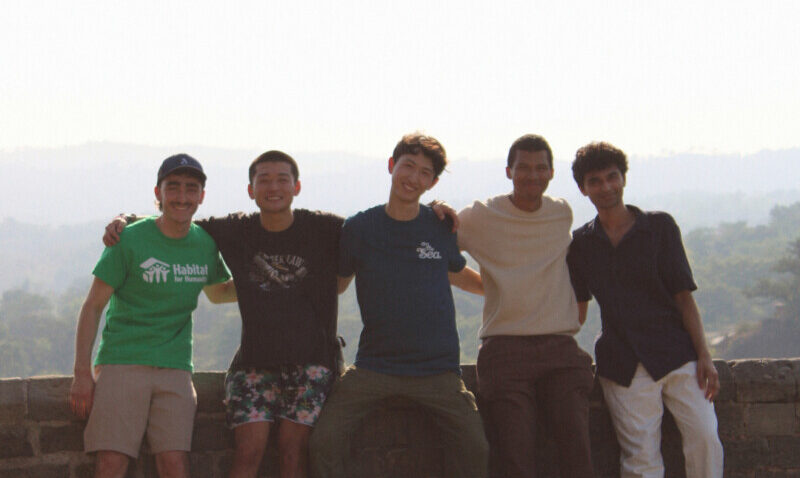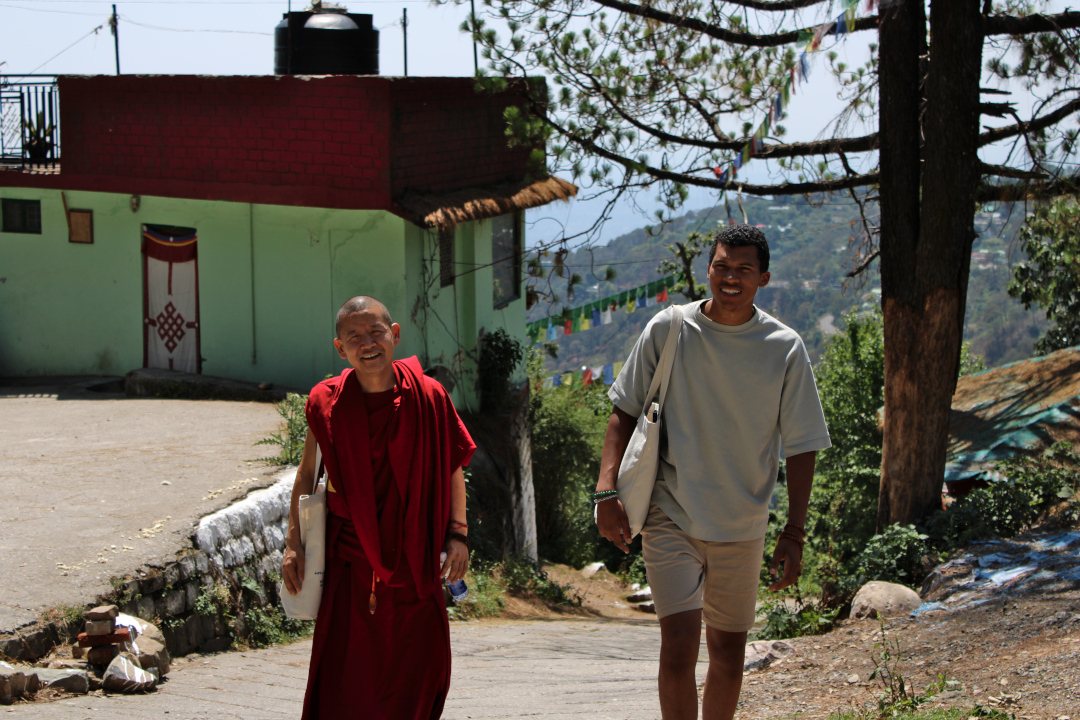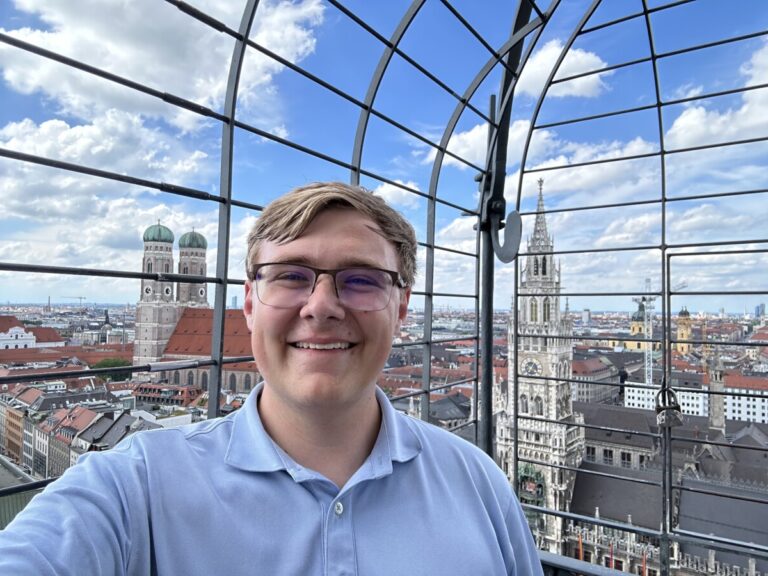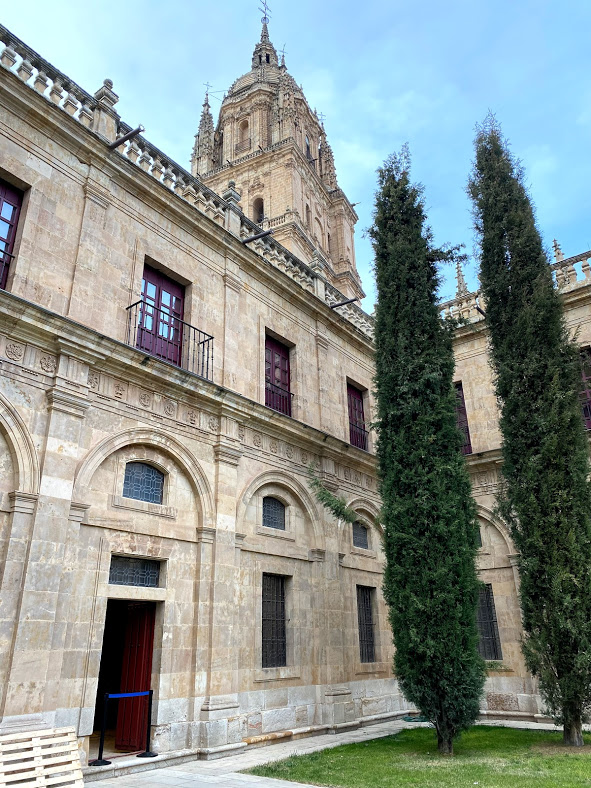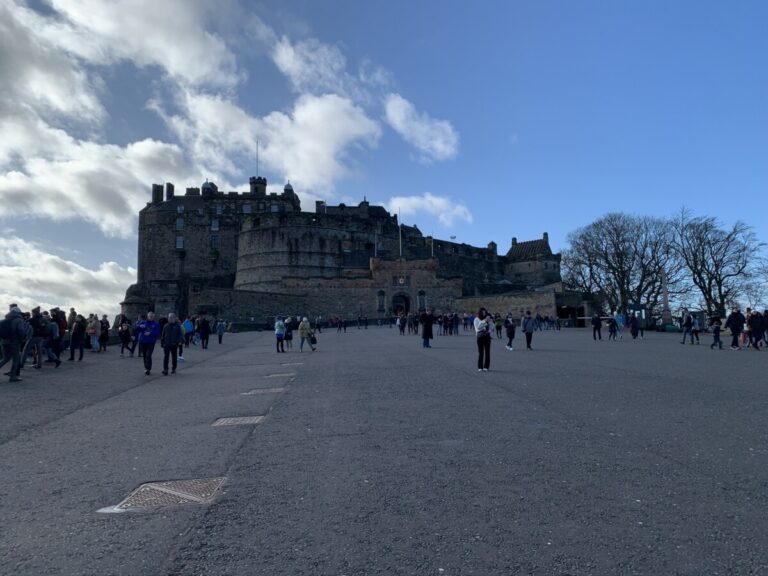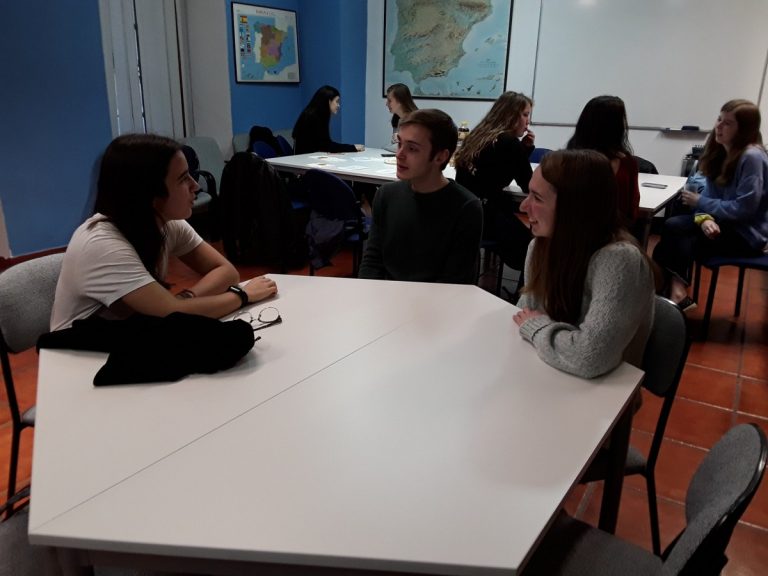Suffering is the Norm, Happiness is Won
by Hiromu Sakuma, Emory Tibetan Mind-Body Sciences Program, Summer 2024
Ever since I was young, my mind has been cluttered with thoughts that made me feel disengaged from the world around me. I’ve always wanted to live in the present and better connect with the simplicity of what’s right in front of me. Amidst this self-imposed chaos, I found the Emory Tibetan Mind-Body Sciences Program. It was an opportunity to learn from and live among Buddhist monks, expert practitioners in purifying one’s mind through wisdom and compassion. Right away, I knew this was an exceptional opportunity that may help me alter my chaotic way of life.
Fortunately, I was accepted into the program, and with the invaluable support from the Eagles Abroad Scholarship and the Office of Financial Aid, I was fully prepared to embark on the much-anticipated journey. After more than two days of traveling, we arrived in Dharamsala, our home for the next two weeks. Though my first impression was the blistering Indian heat, I was soon mesmerized by the serene scenery. The green trees in the Kangra Valley seemed to reach out toward the distant Himalayan mountains. From the moment I landed, I felt grounded just from being in an environment full of life and nature.
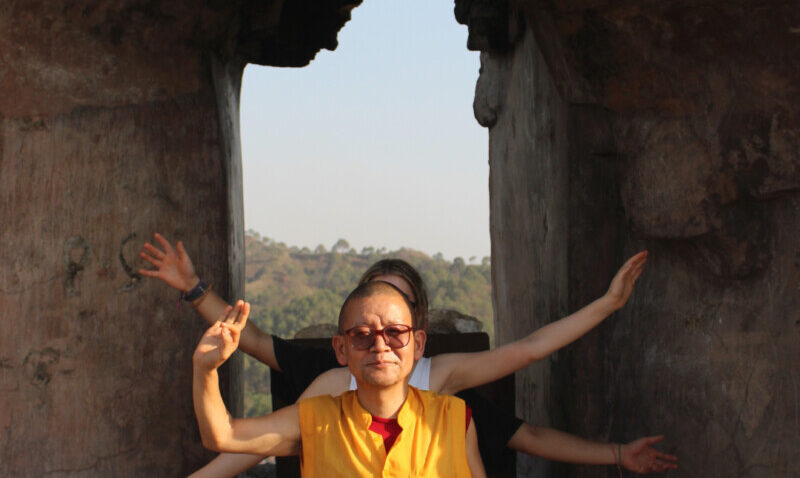
We spent the last three weeks of the program at Drepung monastery of Karnataka in southern India. It was a beautiful place. The earthy scent of petrichor in the air, the flat rural roads bordered by vibrant tropical flora, and the endless expanse of farmlands on the horizon created a completely different vibe from Dharamsala. It felt like a new beginning rather than a new chapter. Just as the Himalayas loomed over Dharamsala, a prayer hall was visible in the distance. The monastery likewise gave me a sense of mindful connectedness with the beauty that surrounded me.
My mentors, most of whom were Geshe Las (academic title for Tibetan Buddhists equivalent to a PhD), radiated warmth and vibrance. These monks and nuns helped us gather our thoughts every morning during meditation sessions, answered our most thought-provoking questions (What is it like to reach nirvana? How can we live a fulfilling life?) during mealtimes, and engaged in stimulating conversations that combined conventional Western science with Buddhist empiricism. I learned so much. Most importantly, I learned to listen—not only when engaging in conversations with others, but also when I’m by myself. I realized how much wisdom I could gain from my inner voice and how I could guide it toward the right direction through meditative strategies.

We also spent time together just hanging out and having fun. We played basketball (the only time I saw the monks take off their robes during was these intense competitive games), badminton (the nuns kicked our behinds pretty badly) and card games. We also watched movies, shared fun banter, and went on captivating field trips. I learned just as much from these personal times that we spent with our mentors. Their love, light, authenticity, and humor were contagious and deeply transformative. They taught me that wisdom and spiritual depth don’t have to be solemn nor distant; they can be expressed through joy, connection, and the simple, shared experiences of life. These moments of laughter and playfulness were as enlightening as the profound teachings, reminding me that true spiritual growth embraces all aspects of life—serious and lighthearted alike.
It’s been several months since I got back from this journey of personal growth. I’ve taken to heart that the world leads each person down a different path. However unique one’s path may be, I learned that we’re all navigating toward happiness. The path is sometimes overgrown with vines and thorns that cut and strangle; inhabited by predators that claw and gnaw. For this reason, I may find myself running away from this path, getting lost and even feeling like I’ll never reach the destination.
Even after the program, I still sometimes feel that way. Whether with family, friends, coworkers, or strangers, I struggle with the same selfish impulses that limit my potential for happiness. But this, too, I learned, is part of our shared human experience. And somehow, this universal suffering for a good life was the most comforting insight I’ve gained. In addition, I can now label periods of confusion or hardship as parts of life’s journey. It’s these small, incremental steps that truly push us toward progress. Even when my path is overgrown with obstacles, knowing that I’ve developed the tools to clear my way means much more than being handed a perfect life.
